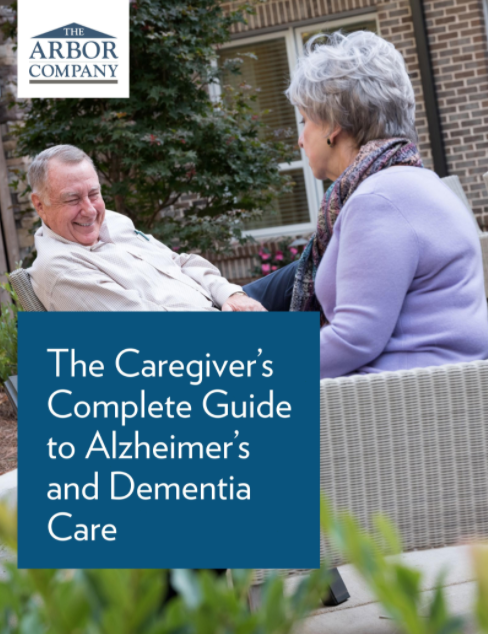Memory Care Facilities Charlotte: Creating a Secure and Nurturing Community
Memory Care Facilities Charlotte: Creating a Secure and Nurturing Community
Blog Article
Efficient Mental Deterioration Care Methods for a Better Quality of Life
In the realm of mental deterioration treatment, the execution of reliable approaches is essential for enhancing the high quality of life for both people impacted by the illness and their caretakers. Understanding the unique stages of dementia permits for customized interventions that attend to the developing requirements of clients-- from promoting cognitive engagement in the very early stages to guaranteeing self-respect in late-stage care. The value of communication techniques and a supportive environment can not be overstated. What specific approaches can be taken on to foster an atmosphere of concern and link throughout this challenging trip?
Understanding Dementia Stages

In the very early phase, people might experience mild memory loss and difficulty with familiar jobs. Care strategies ought to focus on preserving freedom and providing cognitive excitement. In the late stage, individuals might lose the ability to require and connect support with day-to-day tasks.
Identifying these phases enables caregivers to adjust their strategies and offer support that straightens with the individual's present demands, ultimately promoting far better administration of the condition and enhancing the general caregiving experience. Understanding mental deterioration stages is as a result a fundamental facet of effective dementia treatment.
Interaction Strategies
Efficient interaction is an important element of mental deterioration care, especially as the illness proceeds with its different stages. As cognitive capabilities decrease, it comes to be necessary to adapt communication methods to satisfy the requirements of people with dementia. Using clear, easy language is important; caretakers ought to prevent intricate sentences and jargon, deciding rather for simple, concise expressions.
Non-verbal interaction plays an equally considerable function. Faces, motions, and intonation can convey warmth and understanding, commonly enhancing spoken messages. Preserving eye call and an open posture promotes a feeling of connection and safety, urging people with dementia to involve more totally in conversations.
It is likewise useful to be individual and permit enough time for actions. People may require added time to procedure info and create their thoughts. Duplicating or putting in other words questions might be required if comprehension appears doing not have.
Lastly, concentrating on the person's interests and individual history can facilitate extra meaningful interactions. Involving in familiar subjects can stimulate favorable memories and feelings, better enriching the interaction experience (memory care facilities charlotte). By using these methods, caregivers can dramatically enhance the quality of communications, advertising dignity and regard for people living with dementia
Developing a Safe Environment
Creating a safe atmosphere for individuals with mental deterioration is important to advertising their well-being and freedom. A well-designed room can significantly decrease the threats of accidents and enhance the top quality of life for those impacted by this condition.
Illumination plays a crucial role too; making use of natural light wherever possible and including night lights can assist individuals browse their surroundings safely. In addition, identifying areas and vital things can aid memory and orientation, minimizing complication and stress and anxiety.
It is likewise essential to create an acquainted atmosphere by customizing the area with pictures or cherished things, which can evoke favorable memories and a sense of belonging.
Incorporating furnishings that is both useful and comfy adds to an encouraging ambience, enabling individuals to involve in everyday tasks easily. Inevitably, a safe environment not just safeguards against physical risks yet likewise fosters a complacency, which is essential for the emotional well-being of those coping with mental deterioration.
Engaging Regimens and activities
Involving tasks and structured routines are vital elements in the treatment of individuals with dementia, as they promote cognitive feature, emotional security, and social interaction. These tasks must be tailored to the individual's passions, capacities, and stage of cognitive decline. useful content dementia care charlotte. Easy, repeated jobs such as horticulture, arts and crafts, or cooking can offer purposeful involvement, permitting individuals to use their skills while fostering a feeling of accomplishment
Establishing a daily routine helps develop a foreseeable setting, which can reduce stress and anxiety and complication. This framework can consist of designated times for meals, tasks, and remainder, making sure a well balanced strategy to every day life. Including social interactions Get More Information into these routines, such as team activities or going to household, more enhances emotional well-being and fights feelings of seclusion.
In addition, exercises, such as walking or dancing, not only advertise physical health and wellness but also promote mental interaction. Encouraging participation in community occasions or assistance groups can offer extra opportunities for socializing. In general, the integration of organized routines and appealing activities is vital in enhancing the lifestyle for people with mental deterioration, fostering self-reliance and dignity while addressing their distinct needs.
Supporting Caretaker Wellness
Caring for individuals with mental deterioration can be a requiring and mentally exhausting experience, making it essential to focus on the health of caregivers. Caretakers usually face high levels of stress and anxiety, anxiousness, and physical exhaustion, which can result in burnout otherwise dealt with appropriately. To sustain their health, it is crucial to implement a multifaceted strategy.
First, supplying caregivers with accessibility to education and learning and resources can empower them with strategies to handle daily difficulties. Support groups, both in-person and online, use a system for sharing experiences, promoting a sense of neighborhood, and lowering sensations of seclusion. Additionally, respite care services allow caretakers to take necessary breaks, permitting them time to recharge and participate in to their very own health requirements.
In addition, encouraging caretakers to participate in self-care practices-- such as normal news exercise, healthy and balanced eating, and mindfulness-- can significantly enhance their durability. Promoting open communication regarding their sensations and difficulties with relative or specialists also aids alleviate psychological burdens.
Final Thought
To conclude, reliable mental deterioration treatment techniques include a thorough understanding of the disease's stages, the application of clear interaction techniques, the facility of a risk-free atmosphere, and the promotion of organized routines and interesting activities. Additionally, prioritizing the wellness of caretakers is necessary to maintaining top quality treatment. By incorporating these methods, the total quality of life for individuals with mental deterioration can be significantly improved, promoting a helpful ambience that promotes dignity and psychological well-being.
In the world of mental deterioration care, the implementation of efficient strategies is crucial for enhancing the quality of life for both individuals influenced by the disease and their caregivers. By employing these methods, caretakers can substantially improve the top quality of interactions, advertising self-respect and respect for individuals living with dementia.

Caring for individuals with mental deterioration can be a requiring and psychologically straining experience, making it important to focus on the wellness of caregivers.
Report this page